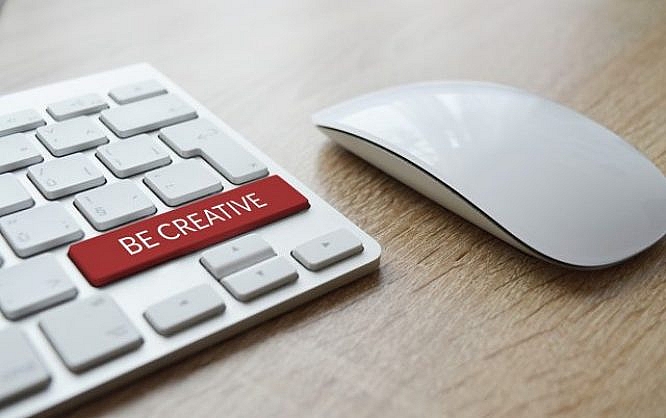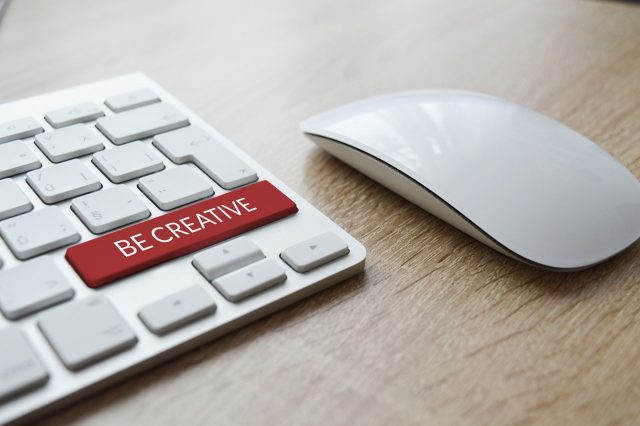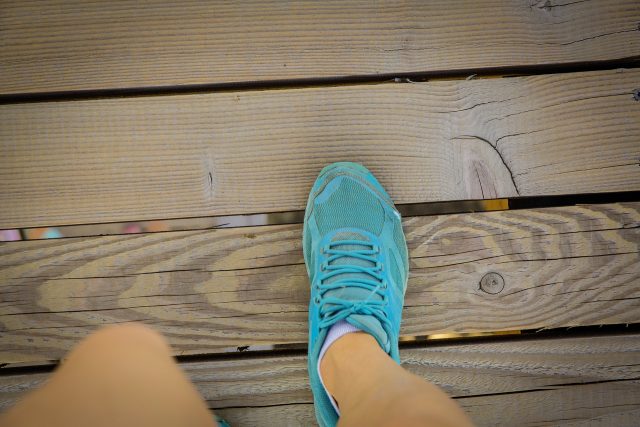Writer’s 101: Creativity Techniques for the Average Joe

Oh no, creativity techniques, is this really necessary? That's probably what you're thinking right now. There is tons of literature on this topic, most of it being pseudo-scientific babble, mixed with approaches that look like they jumped straight out of a conjuring book. I won't show you stuff like this; instead, I'll present robust methods that I tested on myself and found to be good.
 Let me give you some background information, so you get an impression of whether you should believe me or not. I've been getting paid for writing since the mid-90s. I've delivered over 10,000 articles for online publications, as well as a variety of professional manuals, expert reports, short stories, and ad texts. Nobody should want or be able to deny my experience.
Previously, I showed you ways of how to quickly find topics. Of course, that's an aspect of creative thought processes as well. Today, I don't want to talk about these factual approaches as much. I'd rather show you what I do when my creativity falters, leaves me entirely, or decides not even to show up in the morning.
Let's start with things that don't work for me.
Let me give you some background information, so you get an impression of whether you should believe me or not. I've been getting paid for writing since the mid-90s. I've delivered over 10,000 articles for online publications, as well as a variety of professional manuals, expert reports, short stories, and ad texts. Nobody should want or be able to deny my experience.
Previously, I showed you ways of how to quickly find topics. Of course, that's an aspect of creative thought processes as well. Today, I don't want to talk about these factual approaches as much. I'd rather show you what I do when my creativity falters, leaves me entirely, or decides not even to show up in the morning.
Let's start with things that don't work for me.
 You probably already know suggestions like "only eat superfoods." Doesn't work. I won't set up some high-performance nutrition logistics that is not even proven to be effective. At least, I have never felt an energy boost that was purely related to eating a particular food. I already eat healthily, but not because it is supposed to increase my creativity.
By the way: You do know that you can't expect to be productive after chugging five liters of beer and two liters of coffee, right? I've never made this bad experience with sugar, though. However, that doesn't mean you should fatten yourself with sugar, as I've also never felt sugar positively influencing my productivity either. It simply didn't matter.
At last, I was able to verify a direct connection between creativity and food consumption. If I don't pay attention to a sufficient water supply, my performance will drop rapidly. For that reason, I always keep a carafe full of water on my desk. Once it's empty, I get a new one. This way, I'll drink about three liters of water every work day.
"Expand your horizon" and other tips that basically recommend taking part in things that you'd never take part in voluntarily, to force your creativity to work, have proven to be just as ineffective for me, and they'll likely be for you.
Surely, there are people that somehow only run around on camps, workshops, and whatnot. These people swear that it pushes them forward immensely. But when you actually look at the output these people have to show, you'll often get to a sobering result.
Let me put it this way: if I use a method to get my creativity going, this method needs to have an appropriate effort to use relation. I do not doubt that a two-week Carribean vacation would give me a lot of impressions that may come in handy. But, how often am I supposed to do that, and how am I going to price in these incentives ;-)
"Break your mental barriers." This is a good one too. Think outside your way of thinking. This is almost meta. Of course, meditation and Zen Buddhism can get you there. But I consider this breaking a butterfly on a wheel. After all, your goal is to be creative, and not to turn around your entire life.
This is not supposed to mean that I have a problem with meditation or Zen. The opposite is the case, and I'm actually working myself into that direction. However, the point of that is not to initiate creative boosts, but to bring more awareness to my life.
"Break the rules," "Don't repeat yourself," and "Challenge yourself" go into that category as well, by the way. I don't want to question the creativity of the people that came up with these tips, though ;-)
You probably already know suggestions like "only eat superfoods." Doesn't work. I won't set up some high-performance nutrition logistics that is not even proven to be effective. At least, I have never felt an energy boost that was purely related to eating a particular food. I already eat healthily, but not because it is supposed to increase my creativity.
By the way: You do know that you can't expect to be productive after chugging five liters of beer and two liters of coffee, right? I've never made this bad experience with sugar, though. However, that doesn't mean you should fatten yourself with sugar, as I've also never felt sugar positively influencing my productivity either. It simply didn't matter.
At last, I was able to verify a direct connection between creativity and food consumption. If I don't pay attention to a sufficient water supply, my performance will drop rapidly. For that reason, I always keep a carafe full of water on my desk. Once it's empty, I get a new one. This way, I'll drink about three liters of water every work day.
"Expand your horizon" and other tips that basically recommend taking part in things that you'd never take part in voluntarily, to force your creativity to work, have proven to be just as ineffective for me, and they'll likely be for you.
Surely, there are people that somehow only run around on camps, workshops, and whatnot. These people swear that it pushes them forward immensely. But when you actually look at the output these people have to show, you'll often get to a sobering result.
Let me put it this way: if I use a method to get my creativity going, this method needs to have an appropriate effort to use relation. I do not doubt that a two-week Carribean vacation would give me a lot of impressions that may come in handy. But, how often am I supposed to do that, and how am I going to price in these incentives ;-)
"Break your mental barriers." This is a good one too. Think outside your way of thinking. This is almost meta. Of course, meditation and Zen Buddhism can get you there. But I consider this breaking a butterfly on a wheel. After all, your goal is to be creative, and not to turn around your entire life.
This is not supposed to mean that I have a problem with meditation or Zen. The opposite is the case, and I'm actually working myself into that direction. However, the point of that is not to initiate creative boosts, but to bring more awareness to my life.
"Break the rules," "Don't repeat yourself," and "Challenge yourself" go into that category as well, by the way. I don't want to question the creativity of the people that came up with these tips, though ;-)
 Recently, there was a lot to read on how neuroscientists discovered that you're especially creative when you're exhausted, and think of something different than usual in this state of exhaustion. Due to the exhaustion, you lose your focus, supposedly making it easier for your mind to wander paths that it would never enter fully focused. It is said that you'd get alternative ideas that would stay hidden from you otherwise.
I'm way too friendly to even think about a word like nonsense, but I'm very close to doing so. It might be possible that these scientists can deliver academic proof for this claim. However, my life is not taking place under academic conditions, but here and now, the way it is. Under these given conditions, I was never able to profit from exhaustion.
Recently, there was a lot to read on how neuroscientists discovered that you're especially creative when you're exhausted, and think of something different than usual in this state of exhaustion. Due to the exhaustion, you lose your focus, supposedly making it easier for your mind to wander paths that it would never enter fully focused. It is said that you'd get alternative ideas that would stay hidden from you otherwise.
I'm way too friendly to even think about a word like nonsense, but I'm very close to doing so. It might be possible that these scientists can deliver academic proof for this claim. However, my life is not taking place under academic conditions, but here and now, the way it is. Under these given conditions, I was never able to profit from exhaustion.
 Source[/caption]
Source[/caption]
 Source[/caption]
Source[/caption]
 Source[/caption]
Source[/caption]
 Let me give you some background information, so you get an impression of whether you should believe me or not. I've been getting paid for writing since the mid-90s. I've delivered over 10,000 articles for online publications, as well as a variety of professional manuals, expert reports, short stories, and ad texts. Nobody should want or be able to deny my experience.
Previously, I showed you ways of how to quickly find topics. Of course, that's an aspect of creative thought processes as well. Today, I don't want to talk about these factual approaches as much. I'd rather show you what I do when my creativity falters, leaves me entirely, or decides not even to show up in the morning.
Let's start with things that don't work for me.
Let me give you some background information, so you get an impression of whether you should believe me or not. I've been getting paid for writing since the mid-90s. I've delivered over 10,000 articles for online publications, as well as a variety of professional manuals, expert reports, short stories, and ad texts. Nobody should want or be able to deny my experience.
Previously, I showed you ways of how to quickly find topics. Of course, that's an aspect of creative thought processes as well. Today, I don't want to talk about these factual approaches as much. I'd rather show you what I do when my creativity falters, leaves me entirely, or decides not even to show up in the morning.
Let's start with things that don't work for me.
These Are the Creativity Tips That I've Put Down as Inefficient Over the Years
Simple, but very popular tips like "Turn Writing an Article Every Day Into a Habit" don't work for me. If I only wrote one article a day, I wouldn't be able to make ends meet financially. "Read books" is another traditional advice that is no good for me. I do read a lot of books, at least one per week. I also use book summary apps to get familiar with many different titles and genres. However, I can't remember the last time a book inspired me to write an article. Well, maybe if I was a book blogger... but I'm not. "Take notes as soon as an idea comes up." Although this tip is not bad, I have had little success with the realization. I always get my ideas at the weirdest times, and in the weirdest places. I have tried to carry small diaries with me, or to record voice memos on my smartphone. For a while there, I even kept an extremely small Olympus recording device on me. None of this worked out for me. I gave up on it. Techniques like "Brainstorming" or "Mind Mapping" go into the same direction. In twenty years, this has never worked for me, although I will admit that brainstorming in larger groups can definitely show some good results. When having to draw creativity out of oneself, this is a lot more difficult as there are no resonating bodies. You probably already know suggestions like "only eat superfoods." Doesn't work. I won't set up some high-performance nutrition logistics that is not even proven to be effective. At least, I have never felt an energy boost that was purely related to eating a particular food. I already eat healthily, but not because it is supposed to increase my creativity.
By the way: You do know that you can't expect to be productive after chugging five liters of beer and two liters of coffee, right? I've never made this bad experience with sugar, though. However, that doesn't mean you should fatten yourself with sugar, as I've also never felt sugar positively influencing my productivity either. It simply didn't matter.
At last, I was able to verify a direct connection between creativity and food consumption. If I don't pay attention to a sufficient water supply, my performance will drop rapidly. For that reason, I always keep a carafe full of water on my desk. Once it's empty, I get a new one. This way, I'll drink about three liters of water every work day.
"Expand your horizon" and other tips that basically recommend taking part in things that you'd never take part in voluntarily, to force your creativity to work, have proven to be just as ineffective for me, and they'll likely be for you.
Surely, there are people that somehow only run around on camps, workshops, and whatnot. These people swear that it pushes them forward immensely. But when you actually look at the output these people have to show, you'll often get to a sobering result.
Let me put it this way: if I use a method to get my creativity going, this method needs to have an appropriate effort to use relation. I do not doubt that a two-week Carribean vacation would give me a lot of impressions that may come in handy. But, how often am I supposed to do that, and how am I going to price in these incentives ;-)
"Break your mental barriers." This is a good one too. Think outside your way of thinking. This is almost meta. Of course, meditation and Zen Buddhism can get you there. But I consider this breaking a butterfly on a wheel. After all, your goal is to be creative, and not to turn around your entire life.
This is not supposed to mean that I have a problem with meditation or Zen. The opposite is the case, and I'm actually working myself into that direction. However, the point of that is not to initiate creative boosts, but to bring more awareness to my life.
"Break the rules," "Don't repeat yourself," and "Challenge yourself" go into that category as well, by the way. I don't want to question the creativity of the people that came up with these tips, though ;-)
You probably already know suggestions like "only eat superfoods." Doesn't work. I won't set up some high-performance nutrition logistics that is not even proven to be effective. At least, I have never felt an energy boost that was purely related to eating a particular food. I already eat healthily, but not because it is supposed to increase my creativity.
By the way: You do know that you can't expect to be productive after chugging five liters of beer and two liters of coffee, right? I've never made this bad experience with sugar, though. However, that doesn't mean you should fatten yourself with sugar, as I've also never felt sugar positively influencing my productivity either. It simply didn't matter.
At last, I was able to verify a direct connection between creativity and food consumption. If I don't pay attention to a sufficient water supply, my performance will drop rapidly. For that reason, I always keep a carafe full of water on my desk. Once it's empty, I get a new one. This way, I'll drink about three liters of water every work day.
"Expand your horizon" and other tips that basically recommend taking part in things that you'd never take part in voluntarily, to force your creativity to work, have proven to be just as ineffective for me, and they'll likely be for you.
Surely, there are people that somehow only run around on camps, workshops, and whatnot. These people swear that it pushes them forward immensely. But when you actually look at the output these people have to show, you'll often get to a sobering result.
Let me put it this way: if I use a method to get my creativity going, this method needs to have an appropriate effort to use relation. I do not doubt that a two-week Carribean vacation would give me a lot of impressions that may come in handy. But, how often am I supposed to do that, and how am I going to price in these incentives ;-)
"Break your mental barriers." This is a good one too. Think outside your way of thinking. This is almost meta. Of course, meditation and Zen Buddhism can get you there. But I consider this breaking a butterfly on a wheel. After all, your goal is to be creative, and not to turn around your entire life.
This is not supposed to mean that I have a problem with meditation or Zen. The opposite is the case, and I'm actually working myself into that direction. However, the point of that is not to initiate creative boosts, but to bring more awareness to my life.
"Break the rules," "Don't repeat yourself," and "Challenge yourself" go into that category as well, by the way. I don't want to question the creativity of the people that came up with these tips, though ;-)
 Recently, there was a lot to read on how neuroscientists discovered that you're especially creative when you're exhausted, and think of something different than usual in this state of exhaustion. Due to the exhaustion, you lose your focus, supposedly making it easier for your mind to wander paths that it would never enter fully focused. It is said that you'd get alternative ideas that would stay hidden from you otherwise.
I'm way too friendly to even think about a word like nonsense, but I'm very close to doing so. It might be possible that these scientists can deliver academic proof for this claim. However, my life is not taking place under academic conditions, but here and now, the way it is. Under these given conditions, I was never able to profit from exhaustion.
Recently, there was a lot to read on how neuroscientists discovered that you're especially creative when you're exhausted, and think of something different than usual in this state of exhaustion. Due to the exhaustion, you lose your focus, supposedly making it easier for your mind to wander paths that it would never enter fully focused. It is said that you'd get alternative ideas that would stay hidden from you otherwise.
I'm way too friendly to even think about a word like nonsense, but I'm very close to doing so. It might be possible that these scientists can deliver academic proof for this claim. However, my life is not taking place under academic conditions, but here and now, the way it is. Under these given conditions, I was never able to profit from exhaustion.
Creativity Techniques To Apply Right Now
Now, I'll write down my techniques. I've been using these methods daily for years. The order in which they appear represents the significance they have for me.Creativity Technique 1: Sleep
Sounds mundane, and it really is. Nonetheless, sleep is consistently undervalued. Bon Jovi once sang "I'll sleep when I'm dead," but must have forgotten that the recovery effect that is unique to sleeping will not occur in that case. Sleeping is not really a creativity technique. You can't just sleep for a bit and expect a new idea to pop up. Nonetheless, sleep is the base for all other techniques. When you're exhausted, you're exhausted, but not creative, not productive. Just look at the discrepancy between the words "exhaustion," and "productivity." You realize that yourself, don't you? Of course, sleep is an individual thing. I know some people that claim to run perfectly well on four hours of sleep a night, while others are useless if they haven't slept for at least eight hours. And although I will admit that sleep is individual; it still is not THAT individual. According to my observation, we tend to underestimate our need for sleep, as we think of ourselves to be as strong as an ox, and sleep is for the weak. You don't need to actively feel this; your subconsciousness takes care of that. At least make sure to look deeper into the topic of sleeping. If there are things wrong with the base, you needn't think about anything else. You can't build a highrise on sand.Creativity Technique 2: Relaxation and Breathing
Under the impression of the approaching deadline, and the pressure that results from your email, Slack, or enter-any-other-communication-channel-here flood, it is not possible for you to be creative. Your brain will block off anything that is not absolutely necessary and goes into fight-or-flight mode. Move to an open window, take deep breaths, inhale, exhale, and focus on the part of your body where the breath enters and leaves the body. Breathe in through the nose, and out through the pursed mouth. This doesn't need to take longer than one or two minutes. Breathe regularly, and focus on nothing but your breath. You'll quickly feel how you calm down, how the barriers disappear, and thoughts that are not related to fight or flight become possible again. Whenever you feel yourself developing stress, notice it, and execute the above-mentioned exercise. This way, you become more present, and you'll be able to react more directly. If you succeed, the barriers will become lesser on their own. What doesn't work for me, however, are small naps. Supposedly, micro naps increase the wellbeing. They tend to knock me deep into the hole, though. After a nap, I need hours to go back to proper shape.Creativity Technique 3: Focusing With the Help of Sound
To be creative, an undisturbed environment is necessary. In the everyday office life, this is not easy to accomplish. Someone always thinks they had to tell you the latest gossip, or the oldest joke. You won't achieve much with a few kind words. There's a simple solution: wear headphones. Wearing headphones alone already shows your environment that you don't want to be disturbed, while also making it harder to disturb you. Don't use small in-ears, but go for the big ones from Bose or Sony. This way it is evident that you don't want to hear what Carl Gustav wants to tell you. Now, of course, you won't listen to the latest song of Asking Alexandria, but you'll pick a sound that increases your focus while being able to spark creativity. Try Noisli or Focus@Will, for example. I use them both, depending on my mood. While Noisli lets you compile environment sounds, like the sound of the sea, Focus@Will delivers music experiences. The operators have worked with the results of neuroscience and created sounds that are supposed to boost productivity and creativity. Both services work a lot better than all the concentration playlists you can find on Spotify. The latter ones have too many breaks that will immediately drag you out of focus again. Focus is only created by a consistently steady sound. This is not supposed to be boring, but still predictable. [caption id="attachment_78047" align="alignnone" width="640"] Source[/caption]
Source[/caption]
Creativity Technique 4: Motion
Yes, this does also include sports. A power walk of half an hour charges my batteries better than half an hour on the park bench. I don't have to explain which biochemical processes are responsible for that. You know this, but your weaker self is tough to beat. If a power walk is not doable for whatever reason, go for a dragged out walk. While you're at it, you might as well pay attention to your breathing, and listen to calming sounds. It's important to do something that gets your metabolism going. [caption id="attachment_78048" align="alignnone" width="640"] Source[/caption]
Source[/caption]
Creativity Technique 5: Listen
Listening, not talking, is one of my most effective methods when it comes to solving an issue with your creativity. Just ask people around you or in social media a couple of simple questions that deal with your article, and look at their answers. You will almost always find something that you didn't think about yourself. It's important to include a sufficiently large group or to make sure that there are a few experts on the topic involved. An alteration of this technique is to search the problem at hand via Google and compile a large variety of suggestions from the search results. [caption id="attachment_78049" align="alignnone" width="640"] Source[/caption]
Source[/caption]

We all just need to think outside the box.Thank you for sharing this great information.
#convertbetter